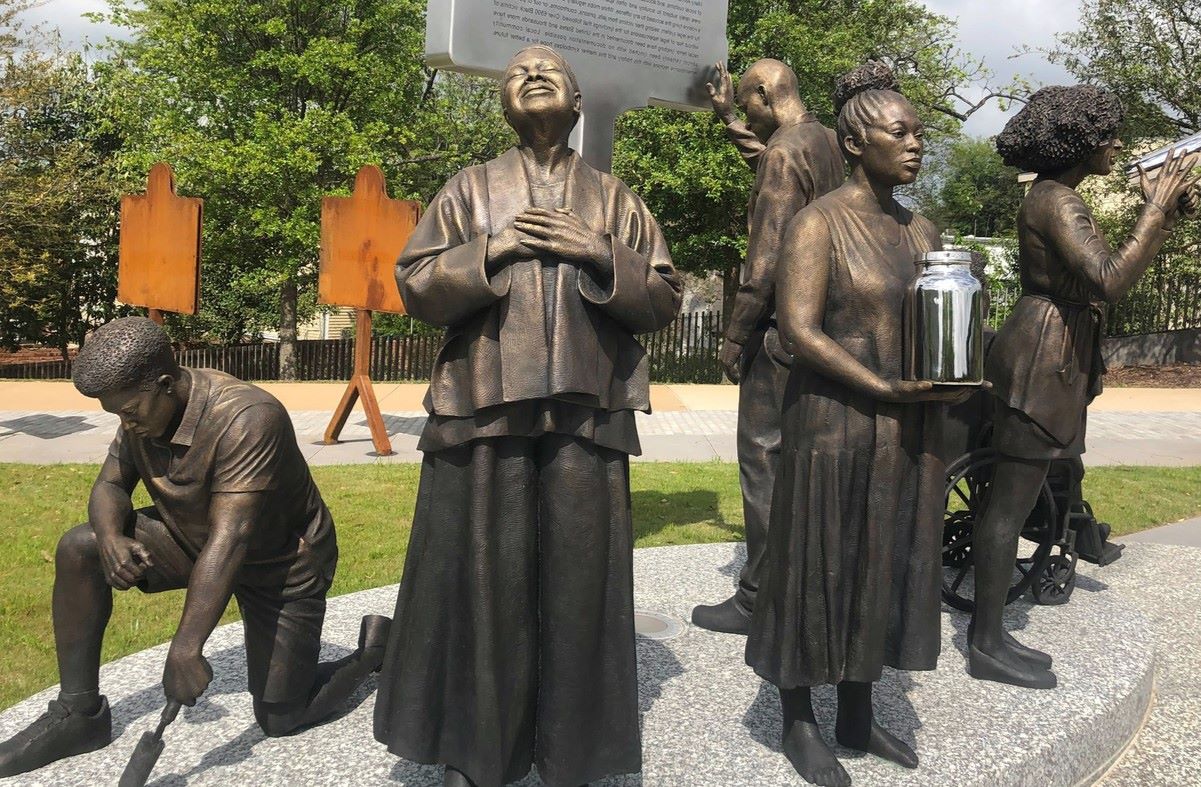Montgomery’s Secret Civil Rights Landmarks

Have you ever wondered about the hidden gems of the Civil Rights Movement? Montgomery, Alabama, holds a treasure trove of historical landmarks that tell the story of a pivotal time in American history. From the Rosa Parks Museum to the Dexter Avenue King Memorial Baptist Church, these sites offer a glimpse into the struggles and triumphs of those who fought for equality. Walking through Montgomery, you can almost hear the echoes of powerful speeches and feel the weight of history. Whether you're a history buff or just curious, exploring these landmarks will give you a deeper understanding of the Civil Rights Movement and its lasting impact.
Montgomery's Hidden Civil Rights Gems
Montgomery, Alabama, holds a significant place in American history, especially regarding the Civil Rights Movement. While many know about the famous landmarks, some lesser-known spots offer a deeper understanding of this pivotal era. Let's uncover these hidden gems.
1. The Ben Moore Hotel
The Ben Moore Hotel played a crucial role during the Civil Rights Movement. This establishment provided a safe haven for activists and leaders who needed a place to strategize and rest.
- Historical Significance: Hosted prominent figures like Martin Luther King Jr.
- Current Status: Now serves as a community center preserving its rich history.
2. The Holt Street Baptist Church
This church is where the Montgomery Bus Boycott was first organized. It stands as a testament to the power of community and faith in the fight for justice.
- Historical Significance: The site of the first mass meeting of the Montgomery Bus Boycott.
- Current Status: Still an active place of worship and historical tours.
3. The Freedom Rides Museum
Housed in the former Greyhound bus station, this museum commemorates the brave Freedom Riders who challenged segregation in interstate travel.
- Historical Significance: Site where Freedom Riders were attacked in 1961.
- Current Status: A museum dedicated to educating the public about the Freedom Rides.
4. The Civil Rights Memorial Center
While not entirely hidden, this center often gets overshadowed by other landmarks. It honors those who lost their lives in the struggle for equality.
- Historical Significance: Features a black granite memorial inscribed with the names of martyrs.
- Current Status: Operated by the Southern Poverty Law Center, offering educational exhibits.
5. The Dexter Avenue King Memorial Baptist Church Parsonage
This modest house was home to Martin Luther King Jr. during the Montgomery Bus Boycott. It's a place where many pivotal decisions were made.
- Historical Significance: King's residence from 1954 to 1960.
- Current Status: Preserved as a museum showcasing King's life and work.
6. The Rosa Parks Museum
Located at the site where Rosa Parks was arrested, this museum provides an immersive experience into the events that sparked the Montgomery Bus Boycott.
- Historical Significance: Chronicles the life of Rosa Parks and the boycott.
- Current Status: Offers interactive exhibits and educational programs.
7. The Southern Poverty Law Center
Founded in 1971, this organization has been at the forefront of fighting hate and seeking justice. Their headquarters in Montgomery is a symbol of ongoing civil rights work.
- Historical Significance: Continues the legacy of civil rights activism.
- Current Status: Active in legal battles against hate groups and discrimination.
8. The First White House of the Confederacy
While not a civil rights landmark, this site provides context to the era's social and political climate. Understanding this history is crucial to grasping the full picture of the Civil Rights Movement.
- Historical Significance: Served as the executive residence of Jefferson Davis.
- Current Status: A museum offering insights into Confederate history.
9. The National Center for the Study of Civil Rights and African-American Culture
Located at Alabama State University, this center focuses on preserving and studying the rich history of African-American culture and civil rights.
- Historical Significance: Houses extensive archives and artifacts.
- Current Status: A research center and museum open to the public.
10. The Elmore Bolling Memorial
This lesser-known site honors Elmore Bolling, a successful black businessman lynched in 1947. It serves as a stark reminder of the violence faced by African-Americans even before the Civil Rights Movement.
- Historical Significance: Commemorates the life and tragic death of Elmore Bolling.
- Current Status: A memorial site maintained by his family and local historians.
Hidden Gems of Montgomery
Montgomery holds many hidden gems that tell the story of the Civil Rights Movement. Visiting places like the Rosa Parks Museum, Dexter Avenue King Memorial Baptist Church, and the Freedom Rides Museum offers a deep dive into history. These landmarks are more than just sites; they are pieces of a larger narrative that shaped the nation.
Walking through these locations, you can feel the weight of history and the courage of those who fought for equality. Montgomery's landmarks are not just for history buffs; they are for anyone who values freedom and justice. Exploring these sites provides a unique perspective on the struggles and triumphs of the past.
Next time you’re in Montgomery, take the time to visit these important landmarks. They are not just part of the city’s history but a crucial part of American history.

